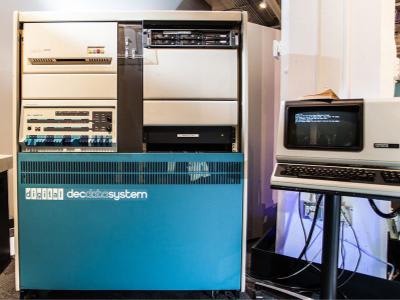AUTHOR

How many working years do you have left until you can finally step into retirement?
Perhaps you’re relatively early on in your career and still have much you want to achieve. Or perhaps you’ve spent a good 40 years giving your all within your industry, and are looking forward to hanging up your boots and enjoying a well-deserved rest.
Whichever your situation, retirement offers an exciting period in our lives where a new chapter begins.
 Our focus will change from career, family, and interests to a time where we can reflect on our achievements, and explore areas of interest that may have been overlooked in our busy working years.
Our focus will change from career, family, and interests to a time where we can reflect on our achievements, and explore areas of interest that may have been overlooked in our busy working years.
That is, of course, if we have the funds to finance it.
Unfortunately, the difference between a comfortable retirement and a difficult one often comes down to the amount of savings we have at retirement. This funding can come from many places, but the majority generally comes from our superannuation.
This makes super an important investment vehicle for preparing for our golden years, and worthy of our attention no matter which stage of life we are in. We are fortunate in Australia to have a robust superannuation scheme and one that has allowed millions to retire comfortably at the end of a long career.
It was the Keating government that made superannuation payments a legal requirement for employers back in 1992. In continuing our journey through RSM’s 100-year history, we find that this decade was also synonymous with peace and prosperity, where working Australians had the ability to pursue a career in just about any field they could imagine.
ALWAYS AHEAD OF THE CURVE
In 1992, employers became legally obligated to contribute at least 3% of their employee's wages into a superannuation fund on their behalf.
Interestingly, the concept of superannuation wasn’t new at all to Bird Cameron (as RSM was known in those days).
In fact, the firm had initiated its own staff pension scheme as far back as 1937; operated through the largest life assurance company in the British Empire.
It was an unprecedented move at the time and likely played a role in so many staff choosing to dedicate their entire careers to the firm.
A letter written to a 28-year-old employee in 1947 explains how the pension scheme worked back then. It stated that as the employee had completed a year of service, he was eligible to join the scheme for which his weekly contribution was 4/11 (49c).
This obviously increased with inflation, and several amendments were made over the years to ensure the scheme remained relevant to the times.
One of the most interesting of these amendments was made in 1967. It was decided that a lump sum pension benefit would be paid, and this was based on an employee’s average salary in the three years before their retirement. This improved equality, because it removed the chance that someone would either be fortunate enough to retire at a time of economic prosperity, or unfortunate enough to face retirement during a recession.
Decisions such as these really demonstrate the firm’s recognition that people are its most valuable asset. Both the firm’s founder, E.R. Woolcott, and long-serving managing partner Cyril Bird (who passed away in 1984), had been highly invested in the development and welfare of all staff.
Providing outstanding service to clients was best achieved through recognising and valuing the contribution the RSM staff made – this was the ultimate motivation for good service.
WHERE WILL YOUR SUPER TAKE YOU? 
Super schemes offer forward-thinking employers the opportunity to stand out in a crowded market. Be it higher contributions, or simply more education around getting the most out of their super, it’s certainly an area that employers should not neglect.
For employees or people who are self-employed, it’s never too early (or too late) to use super and build your retirement. In fact, the earlier you start, the better off you will be utilising the compounding returns and the valuable tax concessions that reward all who use super to build their retirement.
Ultimately, what you are working towards is being able to fund the retirement you aspire to – be it engaging in forgotten hobbies, travelling, paying off a mortgage, supporting family members, or simply relaxing.
Join me in my next article as we step into the 21st century and remember the hype of Y2K, the rise of the internet, and the firm’s transition to RSM Bird Cameron as it moved forward with global expansion.




